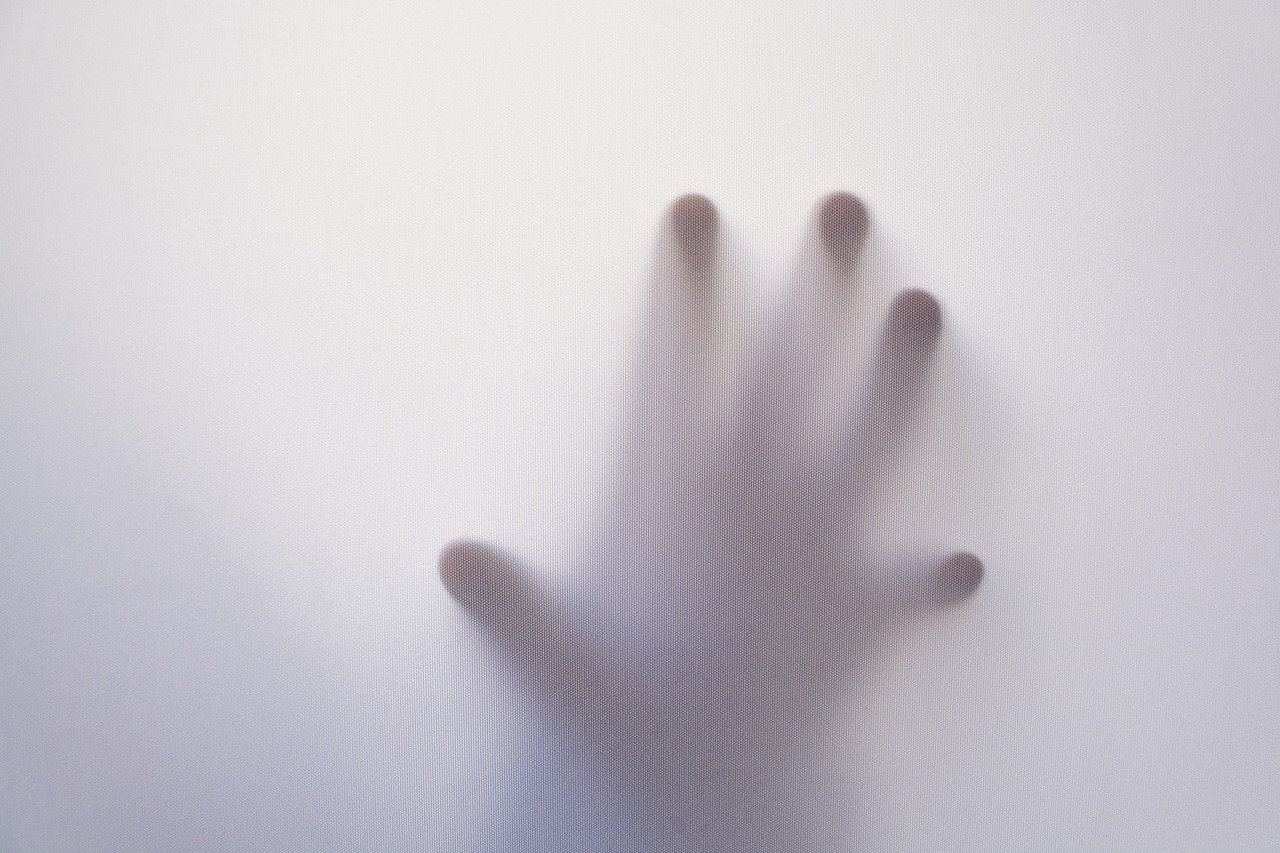Dena Afrasiabi
At lunch one day, Gigi tells her friends she’d been ghosted by Alan, the geo-engineer she met online. Her friends tell her they’re sorry, then chime in with their own ghosting stories, each one trying to outdo the one before: the red-headed Russian cosmonaut who used Shaylin’s hairbrush when she was in the bathroom and didn’t respond when she texted him a picture of it the next day, the teeth covered in red hairs. The singer-songwriter/magician/puppeteer who wrote and produced a video-recorded puppet play for Allison, in which the mopey puppet protagonist was named Allison.
“No,” Gigi interrupts, accidentally whacking her hand against the salt shaker and knocking it off the table. “I mean he literally turned into a ghost and now he follows me on every date.”
There’s a brief silence during which her friends look at each other, trying to decide whether Gigi is joking. Then one friend laughs, prompting the others to follow suit.
“No,” Gigi protests. “I mean he actually died and now he haunts me.”
They keep laughing. One of them burps, causing the other two to laugh harder. Gigi sighs. She should have known these friends would be of no help. She finishes her drink and leaves early.
She met Alan three weeks ago at a Starbucks in the mall. They’d been chatting on a dating app for two weeks prior to their first date. Gigi hadn’t gone out with anyone in almost a year, after her fiancé, George, called off their wedding via text message, saying he loved Gigi but had realized he wanted to be a digital nomad in Australia and only date women with accents. Alan, on the other hand, had the kind of job you couldn’t do remotely. As a geo-engineer, he knew all about the layers of the earth and how they moved or didn’t. Gigi wasn’t sure she was attracted to him, but she liked that he was solid, close to the earth. When he wrapped his arms around her, she felt like she was in one of those tubes they put you in for an MRI, but in a good way.
The first two dates had gone well, Gigi thought. Alan had kissed her at the end of the second and told her he’d call the next day. Gigi didn’t hear from him again.
There had been times in her past when Gigi had gone a long time without hearing from a lover and, after running a long list of possible scenarios explaining his silence, decided her lover must be dead. It had become a joke between her and Marjorie, one of her coworkers at the insurance agency in Round Rock where Gigi worked. Any time one of them didn’t hear back from a romantic interest, the other would say, “He’s probably dead.” Or, “Did you check the morgue?”
One time after a few too many shots of tequila during a workplace happy hour, Gigi and Marjorie decided to plan a funeral for Marjorie’s most recent disappeared date. Gigi called a funeral home whose depressing ads they’d seen on TV and told the man who answered that Marjorie’s husband had died.
“I’m very sorry for your loss,” the man said, his voice getting quieter with each word. “Do you need a large coffin or an extra-large?”
They giggled like children until their stomachs ached.
When Gigi received a text from an unfamiliar number saying Alan had passed away in a motorcycle accident, Gigi wrote back, “ha ha, Marjorie, so funny.”
It was the memorial on Facebook that finally convinced her it wasn’t a prank. Marjorie didn’t participate in social media, not even Instagram. Gigi read the comments under Alan’s picture. “I can’t believe you’re gone,” his sister wrote. “You always seemed so solid.”
Tears fell into the spaces between Gigi’s computer keys.
Sometimes Alan comments on Gigi’s dating performances. “You laughed too much,” he tells her one night after she gets home from her sushi date with a programmer from Portland. “He could tell you were being disingenuous.”
“How do you know?”
“I could tell from his body language.”
“Can you please limit your feedback to constructive criticism?”
“You have a lovely laugh,” Alan says, straining to come up with the right words. “Too lovely to waste on a joke that’s not funny.”
* * *
“Why are you spending all this time with me?” Gigi asks Alan a few weeks into the haunting. “Don’t they have dating apps for ghosts?”
Alan sighs. “Yes, but everyone is so…ghostly,” he tells her. I feel like I’m kissing the air.”
“Well maybe you should have thought about that before you went riding your motorcycle without a helmet,” Gigi snaps.
Alan’s jaw goes slack. “That’s below the belt, Gigi.”
“I’m sorry.” Gigi shakes her head, her face growing warm. I’m just under a lot of pressure at work.”
He starts following her everywhere, not just on dates. She comes into the breakroom at the insurance office to find him eating a maple-glazed Krispy Kreme, raining crumbs all over his chair. He follows her to her parents’ house. To the gym. To the doctor. She draws the line at her visit to the ob-gyn.
She starts to get used to his presence, like that of a pesky sibling whose annoying antics remind her of home. Some nights, they sit on the couch together and swipe on their respective apps. Alan was right about the ghost app. The women thought they were being funny by creating profile pictures using SnapChat filters that made them look like the cartoon ghost from Pac-Man, a white sheet with black eyes. Almost none of the ghosts practiced monogamy. “Death’s too long to tie yourself to one person,” one ghost profile read. Gigi had to agree.
At night, he sleeps by the foot of her bed like a dog, snoring. Ironically, his snores sound like a little kid making ghost noises: wooo-oooo-oooo.Unable to sleep, she lists all the people in her life who have disappeared, all the people who could have come back instead of Alan: her father, who killed himself when she was three. Her sister, who joined the circus at nineteen. Roger, her first boyfriend, who carved her name into peanut butter honey sandwiches but one day gave her a sandwich that said “Theresa” by mistake. Jeremy, her college boyfriend, who took her scuba diving on his boat, showed her sea turtles and swordfish and giant anemones, then sailed off to Belize after graduation.
Months pass. Gigi stops going out. She tires of her friends’ dating horror stories. There are worse things than a stranger’s unexplained silence, she wants to tell them. There are worse things than not being loved.
Nine months into the haunting, Gigi makes an appointment with a local exorcist. She found the ad in the back of the Chronicleand looked it up on Yelp. The exorcist had a lot of five-star reviews. Gigi read through all of them, hoping to find a story similar to her own, but they were mostly about grandparents and murder-suicides.
She asks the exorcist to come over on a Tuesday, the night Alan usually hangs out with his old bowling league at the alley down the street.
The exorcist is in the living room, reading from what looks like an instruction manual, when Gigi walks into the kitchen to see Alan sitting next to the microwave.
“You shouldn’t be here,” she tells him.
“Why not?” Alan crosses his arms.
Unable to think of a lie, she tells him the truth. “You want to attend your own annihilation?”
“Why would you want to annihilate me?”
Gigi recognizes the same question in his eyes, a question she’d wanted to ask every person who’d ever left her, every person who’d never told her why. She doesn’t have an answer. “I don’t,” she says.
Relief paints his face a brighter white. Gigi apologizes and takes his hand.
“It’s okay,” she tells the exorcist. “I think we can work something out.”
Afterward she and Alan go for a stroll by the river. Walking beside him, Gigi thinks about how she’d mistaken ghosting for a kind of absence. But all along it had been a mirror. A mirror that reminds you how easily you can vanish from another person’s mind, how easily you can stop existing in your own.
They stop at a bridge to admire the moonlight’s fingers flickering across the water. He takes her hand in his and kisses her. It feels like she’s kissing the air.
Dena Afrasiabi’s fiction has appeared in Michigan Quarterly Review, The Toast, and Fiction Southeast, among other publications. Her writing has received fellowship support from the National Endowment for the Arts, the Helene Wurlitzer Foundation, the Kimmel Harding Nelson Center for the Arts and the Millay Colony. She works as an editor in the Center for Middle Eastern Studies at UT Austin and lives and writes in Austin, Texas.




